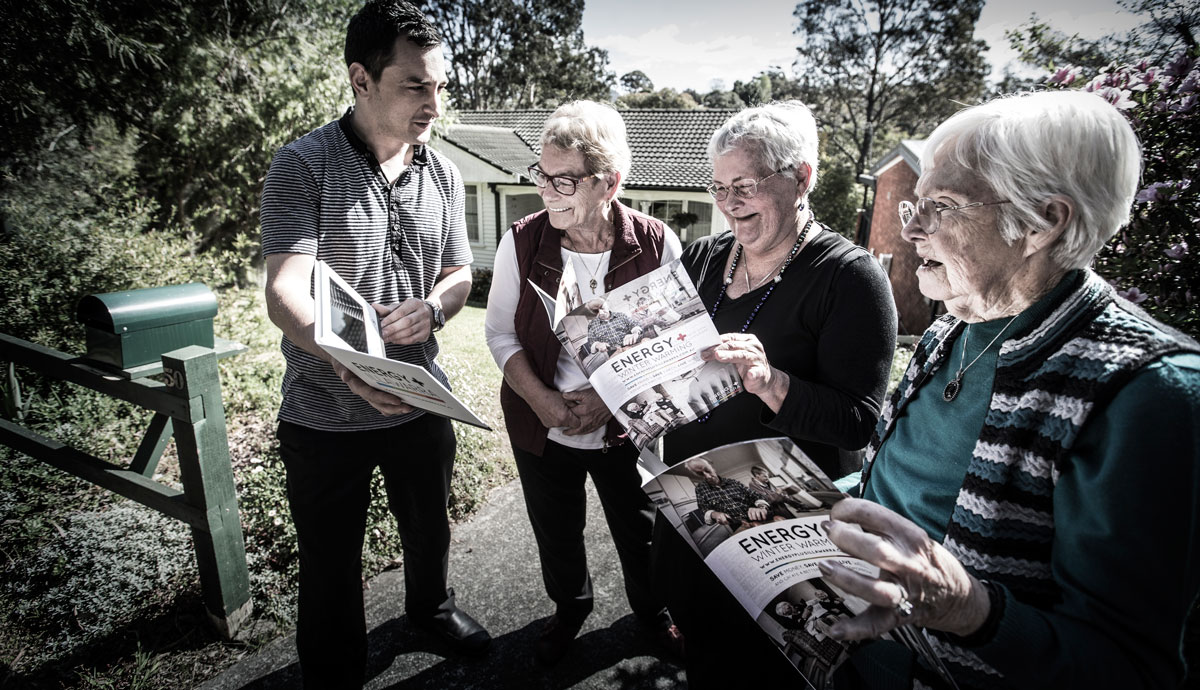September 10, 2015
Community program to help people save energy at home
An innovative social marketing program launched this week is helping elderly low-income earners become more energy efficient.
Over the past few weeks, information packs, fridge thermometers, video books and other useful resources will be appearing in community centres, and landing in mailboxes of older Australians across the Illawarra, South Coast and Southern Highlands to help them be energy efficient without compromising on comfort and wellbeing.
It’s part of the ‘Everyday Energy’ and ‘Winter Warming’ phases of the Energy+Illawarra project. Energy+Illawarra is led by a collaboration between RDAI, University of Wollongong, Macquarie University and a number of key community partners.
The social marketing program uses marketing techniques for social good, and features community workshops, newsletters, web-resources, retrofits to people’s houses, energy use support packages, attempts to influence policy, among other activities to open up conversations about energy efficiency and support people and the broader community in using energy efficiently.
The social marketing materials are based on responses to surveys and focus groups involving close to 1000 low-income residents aged 60 and over from Wollongong, Shellharbour, Kiama, Shoalhaven and the Wingecarribee local government areas.
The research revealed the dominant understanding around energy efficiency amongst low-income older household was thrift and not being wasteful of money. Yet thrifty behaviour can come with potential health and wellbeing risks, including cutting back on heating and lighting to prevent what they thought was wasteful behaviour.
Energy+Illawarra social marketing project lead, Dr Ross Gordon, from Macquarie University said the social marketing programme would help bust myths and misconceptions about energy use as well as provide vital facts and tips on how to use energy efficiently in the home.
“The aim is to provide advice, support and strategies for using energy efficiently to promote comfort and wellbeing. It’s not about simply cutting back, switching off or going without,” Dr Gordon said.
“The critical difference in this campaign is that is was designed with the community, for the community. Campaign strategies are based on extensive research with people in the community. Also, we’ve used local faces in the brochures, videos and website to present an authentic community oriented program that people can relate to”.
“Our first step was to understand people’s energy use as part of everyday life. Now we are going to the community with materials to help them be energy efficient that they have shaped, rather than simply send out information they may not want, need or understand.”
Also as part of the program, WEA Illawarra are holding a series of 25 community events in the region to share insights, stories, and provide advice and support for people to use energy efficiently. These events are being held in local community venues and details of these are being posted on the project website.
The project is also looking at how the built environment, and the broader policy and retail environment could be adapted to help people be energy efficiency at home.
Regional Development Australia Illawarra (RDAI) was awarded a $2.3 million grant from the Australian Government Department of Industry and Science; and consortium organisations have contributed $1.2 million of in-kind work on the Energy+Illawarra project.
The consortium involves a range of organisations including the University of Wollongong and Macquarie University, Illawarra Forum, WEA Illawarra, Warrigal, Royal Freemasons’ Benevolent Institution (RFBI), IRT Group, and Southern Councils Group.
The views expressed herein are not necessarily the views of the Commonwealth of Australia, and the Commonwealth does not accept responsibility for any information or advice contained herein.
